
On my list of Unrealistic Things I'd Like To Do Someday (e.g. going into outer space, becoming a pro baseball or football GM) is
owning a major newspaper (in my head, the
Washington Post). I would love to be a part of something that holds powerful people accountable, unifies the community, and helps readers understand their lives and the world around them.
Last Sunday in the
Post, David Simon (co-creator of the greatest TV drama of all-time,
The Wire) wrote about the
decline of the newspaper industry. The easy take on that subject is that the Internet offers free news to readers and that it steals advertisers away from newspapers, who then have to
cut back on staff,
coverage, etc.
The problem with that? Simon says: "When technology arrived to test the loyalty of longtime readers and the interest of new ones, the newspaper would be offering to cover not more of the world and its issues, but less of both."
He argues that newspapers have hurt themselves by not offering a quality, worthwhile product. Instead of cutting costs and replacing veteran staffers with cheap neophytes in order to survive, Simon would prefer "high-end journalism". He assigns great newspapers the sacred role of being the ones with the resources and the duty to provide the "consistent and sophisticated coverage of issues" that no one else can. I agree with him completely.
Simon's column has attracted a lot of criticism, which I think has mostly been off the mark.
Slate's
Jack Shafer pinned blame for the death of newspapers squarely on economic hardships, and said that "Simon fails to appreciate that the newspaper no longer enjoys the centrality to American life that it had through most of the 20th century." Well, why shouldn't it? After all, Simon is arguing for a way to make newspapers relevant.
Then there are the critics-in-cocoons who think that there isn't a problem. The
Post published a
rebuttal by Sara Libby, who basically tells us anecdotally that since she and her friends read the news, that must mean everyone still cares about newspapers. Not so fast, I'm afraid. I bet her survey sample is a little biased because she's a journalist; her conclusions don't necessary match my experience in college.
At school I have a subscription to the
Washington Post and the
Wall Street Journal, but I can count on one hand the fellow students I know who get their own daily national papers. Sure, like Libby says, many young people get their news online. However--and now it's time for
my anecdotal evidence--I would argue that most go for basic headlines and wire stories, not editorials, columns, and more nuanced reporting.
Before I start to sound like Grandpa Simpson, I want to point out that the old fogies
do have at least one thing wrong: young people don't pursue "celebrity news" at the expense of real news. Most don't pursue it at all; I do as a supplement. The important thing is that not one person I know is obsessed with Paris Hilton, while most people I know are significantly interested in the upcoming presidential election. So the "death of news" should not be blamed on the "light fare".
Ultimately, newspapers (and related struggling fare like the nightly news programs) will not be saved by gimmickry. I think they need to convey to their audience, even through explicit advertising, how important they are. People need to feel they are getting tangible benefits from the news, whether it is an understanding of big-picture issues or just items of local or personal interest. Many people don't feel an incentive to follow the news closely. Simon's vision for newspapers is the one that will prove to them that they do need the news.






 On my list of Unrealistic Things I'd Like To Do Someday (e.g. going into outer space, becoming a pro baseball or football GM) is
On my list of Unrealistic Things I'd Like To Do Someday (e.g. going into outer space, becoming a pro baseball or football GM) is 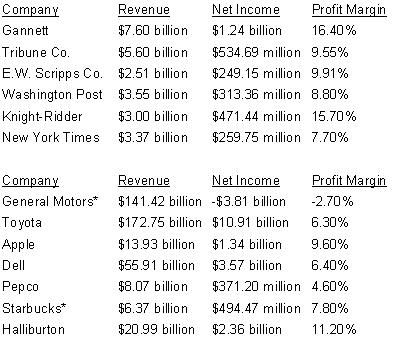
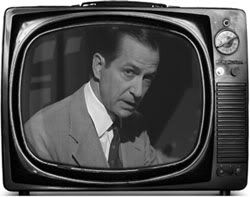 Which really is a shame, considering that TV has the power to get the news across better than either of the aforementioned. I wonder why the evening news programs don't consider getting a corporate sponsor. Edward Murrow's
Which really is a shame, considering that TV has the power to get the news across better than either of the aforementioned. I wonder why the evening news programs don't consider getting a corporate sponsor. Edward Murrow's 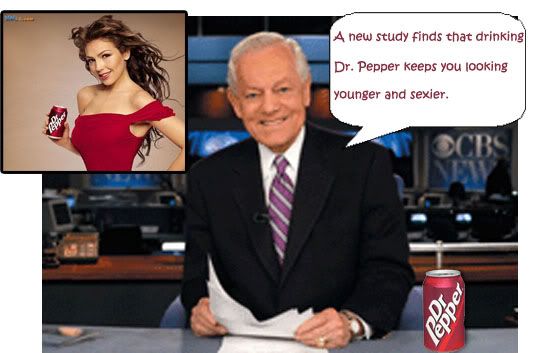
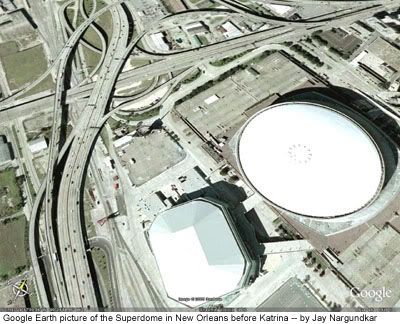

 Veteran commentator Bob Costas surprised some people this week when he
Veteran commentator Bob Costas surprised some people this week when he  For 33 years, the identity of "Deep Throat"--the anonymous source who helped
For 33 years, the identity of "Deep Throat"--the anonymous source who helped 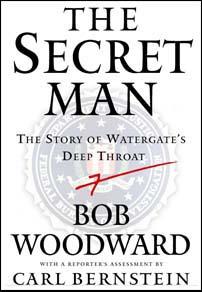 Anyhow, I don't find fault with Woodward for skimming over the Watergate story; after two bestselling books (
Anyhow, I don't find fault with Woodward for skimming over the Watergate story; after two bestselling books (